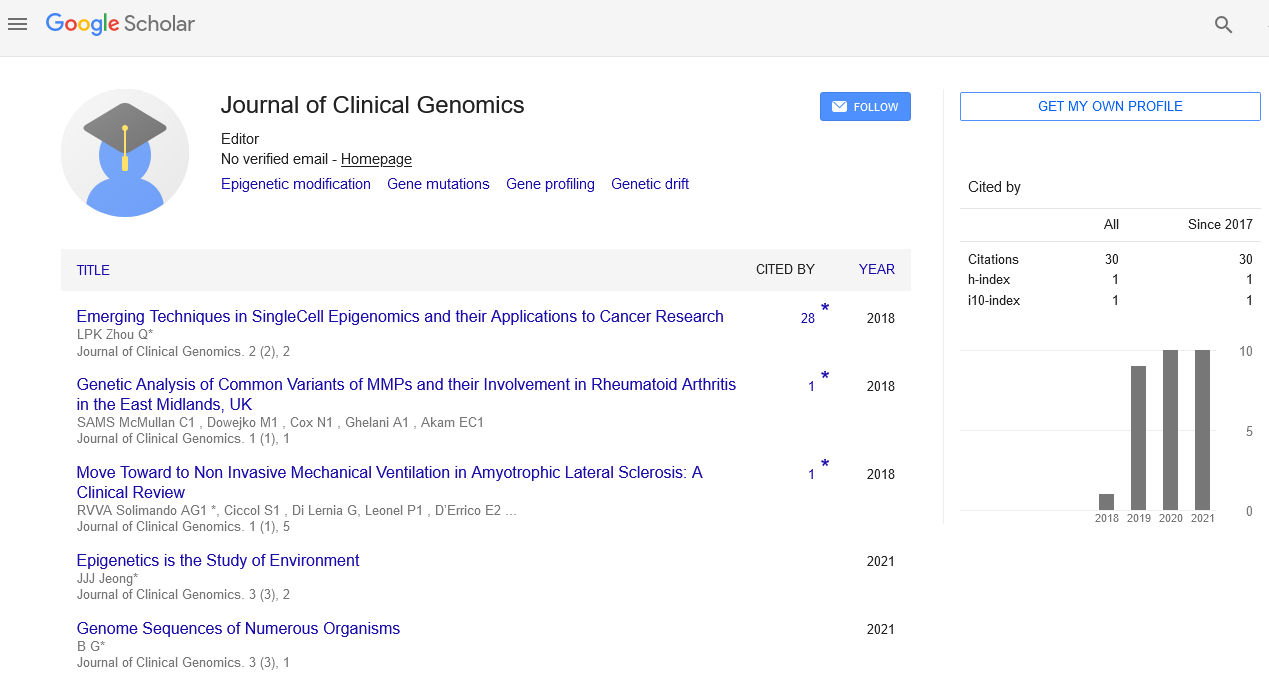Editorial, J Clin Genom Vol: 7 Issue: 1
Integration of Clinical Genomics into Healthcare Systems
Sameer Kulkarni*
Department of Medical Informatics, Tata Memorial Centre, Mumbai, India
- *Corresponding Author:
- Sameer Kulkarni
Department of Medical Informatics, Tata Memorial Centre, Mumbai, India
E-mail: sameer.kulkarni@tmc.gov.in
Received: 01-March-2025, Manuscript No. jcg-25-169331; Editor assigned: 4-March-2025, Pre-QC No. jcg-25-169331 (PQ); Reviewed: 20-March-2025, QC No jcg-25-169331; Revised: 26-March-2025, Manuscript No. jcg-25-169331 (R); Published: 30-March-2025, DOI: 10.4172/jcg.1000145
Citation: Sameer K (2025) Integration of Clinical Genomics into Healthcare Systems. J Clin Genom 7:145
Introduction
The integration of clinical genomics into healthcare systems offers enormous potential for improving diagnostics and treatment. However, systemic changes in data infrastructure, physician training, and clinical workflows are necessary for effective implementation.
Electronic Health Records and Genomic Data
Incorporating genomic data into electronic health records (EHRs) can enhance clinical decision-making. EHRs must evolve to store large-scale genomic data and generate real-time alerts for actionable findings [1]. In India, tertiary centers like Tata Memorial Hospital have initiated pilot projects to embed genomic variants within patient records [2].
Challenges in Implementation
A lack of clinician awareness, absence of national genomic policies, and limited bioinformatics infrastructure are key hurdles [3]. Training healthcare professionals in genomic literacy and adopting standards like HL7 FHIR can improve integration [4]. Addressing data privacy and ethical concerns through transparent policies is also essential [5].
 Spanish
Spanish  Chinese
Chinese  Russian
Russian  German
German  French
French  Japanese
Japanese  Portuguese
Portuguese  Hindi
Hindi 